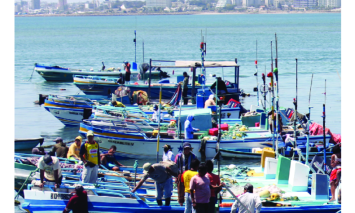This project includes training in social science techniques for characterizing the fishing industry within three target countries: Argentina, Chile, and Ecuador. The project was designed to support NMFS/OIA efforts to reduce marine mammal bycatch in international fisheries, especially those that export fish and fish products to the United States. Under the seafood import rule implemented by the US under its Marine Mammal Protection Act, it is vital that a commensurate capacity building program be undertaken to assess marine mammal bycatch and to develop, test, and implement mitigation technologies to reduce the bycatch of marine mammals to avoid import restrictions. The goal of these regulations is not to restrict imports, but to compel nations to work with scientists to develop effective mitigation measures and then use these measures in fisheries with marine mammal bycatch. This project took the initial step of understanding the bycatch associated with particular fisheries—industrial and small-scale—particular fisheries—industrial and small-scale—so that bycatch reduction programs can be directed at the fisheries where they are most needed. Eventually, the goal is to assist these fisheries in adopting practices and standards that will help them avoid facing possible restrictions on exporting seafood to the U.S. because of excessive marine mammal bycatch, and concomitantly has the goal of helping in the recovery of endangered marine mammal species.

